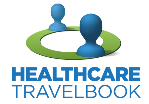
People are always talking about the benefits of journaling. And even though the advantages are numerous, it is also 2010, almost 2011. Today the best way to journal is to blog.
While at work, a nurse always has to be ON. There isn't a lot of time to let your mind wander. Blogging would be excellent way to relax.
When you create a blog you are able to share your day to day occurrences with others OR you can create a blog that is visible to no one else but you.
Over at Nurse Together they created the following list of potential benefits for journaling:
· Work out on paper the issues at hand; strategize to develop solutions for same.
· Articulate the proper words to say to help you communicate better with someone.
· Vent! You can say things in your journal you would/could never say in person, and it’s ok!
· Be still and quiet. Journaling can help you slow down, be present and concentrate better.
· Goal setting - thinking about an idea is one thing, writing it down takes on a whole new meaning.
· Offers a reality check - do you really want to quit your job, get a dog or move to Iceland?
· Provides a safe place to grow - a place for little ideas that won’t be judged, a place for seeds to sprout.
Over at Nurse Together they created the following list of potential benefits for journaling:
· Work out on paper the issues at hand; strategize to develop solutions for same.
· Articulate the proper words to say to help you communicate better with someone.
· Vent! You can say things in your journal you would/could never say in person, and it’s ok!
· Be still and quiet. Journaling can help you slow down, be present and concentrate better.
· Goal setting - thinking about an idea is one thing, writing it down takes on a whole new meaning.
· Offers a reality check - do you really want to quit your job, get a dog or move to Iceland?
· Provides a safe place to grow - a place for little ideas that won’t be judged, a place for seeds to sprout.
If you start/have a public blog let us know and we will be one of your first followers.







